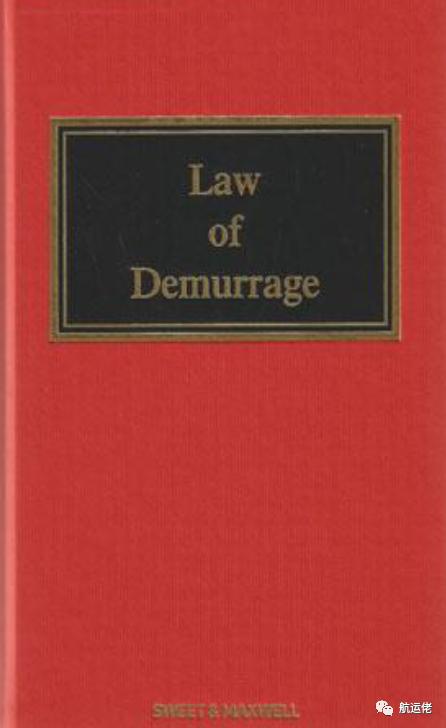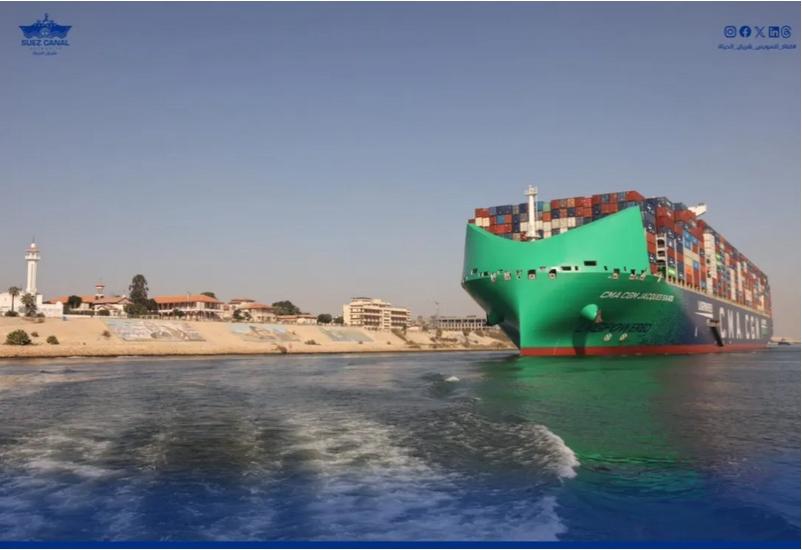一旦滞期永远滞期原则
之前写了不少关于装卸时间计算的文章,有一些基本原则。如果合同规定需要递交NOR,那么必须严格按合同规定去递交。Diplock勋爵把程租航次分为了4个阶段,这4个阶段是连续没有间隙的,通常只有在结束空载或者载货航次才能递交NOR;[1] 船舶还在航未静止下来的时候递交的NOR无效。[2]
想要开始装卸时间计算,通常需要递交一个有效的NOR去触发装卸时间开始起算。关于装卸时间开始计算,英国法律是清晰和简单的;但将这些原则应用于详细的商业事件、情况和活动会导致复杂性和困难。一般来说,根据英国普通法,想要开始装卸时间计算必须满足三个要求,如下:
1. 船舶已抵达约定目的地。目的地可以是港口、船坞、系泊处、泊位等,或者是船舶随后前往承租人指定区域的一部分的区域。
2. 船舶已准备好装卸货物。
3. 向承租人或其代理人递交了准备就绪通知。根据英国普通法,只有在第一个装货港才需要递交;卸货港无需递交,除非合同有这种要求。
当满足上述三个要求时,船舶被视为抵达船舶,根据英国法律装卸时间随即开始。[3] 装卸时间一旦开始计算,除非是合同有相反规定或者船东挪作他用有过错,否则会一直连续计算计算到装卸货完成。[4] 另外,关于滞期费常用的一句格言,“一旦滞期永远滞期”,在船舶进入滞期之后,装卸时间计算条款中通常的例外就不再适用。需要非常明确的措辞才能让法院相信,一旦船舶进入滞期,特定的例外情况仍然适用。[5] 需要铭记的是,任何含糊不清的条款对承租人都没有保护;当事人想保护自己在合同中必须使用清晰明确的措辞。[6]
有人说“一旦滞期永远滞期”是国际惯例;但这种说法和货物千分之五的国际惯例说,似乎都不是恰当的表述。想成为国际惯例,有着非常高的标准,是非常难的。
法律中没有必要提及惯例或规定装卸货应该按照惯例,因为船舶将在合理的时间内进行装卸货作业的默示义务随之而来,即意味着按照当地的惯例进行装卸货作业的义务。惯例,在这个意义上说,是指港口的惯常做法,而不是其它法律意义上的惯例;即双方都接受的惯例,并将其视为合同中具有约束力和不可分隔的一部分。[7]
当双方在租船合同中使用惯例或惯常一词时,应该视为装货或卸货的方式,而不是指装货或卸货具体的时间长度。在评估应允许承租人使用的时间时,应该根据所有情况进行考虑,其中当地惯例是考虑的一部分。在Smailes & Son v Hans Dessen & Co[8]案中,上诉法院的Collins M.R.针对收货人说,他必须做的就是采取合理的谨慎措施,使船舶根据租船合同条款有权获得卸货。因此,他的义务并不意味着他绝对承诺在给定的时间内或任何给定的时间内卸货—他有义务尽一切合理的努力确保特定港口的所有可用设施都用于该目的,给予船舶应有的速遣。在Hulthen v Steward & Co[9]案中,Macnaghten勋爵对此进行了总结,认为所使用的词语并没有具体说明,也没有指向明确的时间段。条款措辞确实指出的是,考虑到港口的习惯、包运合同下特定船舶所拥有的交货设施以及当时存在的所有其他情况,不是由负责接收货物的人造成的情况,也不是在他控制范围内的情况以尽可能最快的速度卸货。
因此如果想确立,为了使承租人无条件地承担责任,那么仅仅规定货物需要以尽力速遣,或者船舶所能交付尽可能快地,或使用那些表明的方法是不够的。为了施加这种责任,租船合同中所使用的语言必须是清晰的,有明确的条款去规定和详细说明在指定的时间内必须完成货物交付。[10] 也就是说,除非是合同条款的措辞已经清晰明确地规定了货物交付的期限,否则不会施加这种绝对的义务到承租人身上。[11]
Blackburn勋爵在 Postlethwaite v Freeland[12] 案中,对“custom”一词进行了解释,租船合同中这个惯例并不是有时候律师使用的那种字面上的意思,而是一个港口习惯的固定和建立,既定的惯例。
那么需要存在多长时间的实践才能被称之为港口的惯例呢?又或这个惯例是谁确立的呢?在Sea Steamship Co Ltd v Price, Walker and Co Ltd[13]案中,约14年前,一些当地商人,驳船的船东和当地的工人对于特定船舶的卸货效率达成一致意见,因此被认为这种卸货效率是一种惯例,但Kennedy法官并不这么认为。在他看来,为了建立一种商业惯例,不仅需要表明当地大量有影响力的人都同意这么做是正确的,而且还需要执行该协议,因为,除非付诸行动,否则没有人会挑战它。仅仅由港口社区中的一个或四个重要阶层的人同意该惯例是可取的,就不能建立一个惯例;港口惯例必须可强制执行。[14]
自从Hulthen v Stewart[15]案判决后,程租合同通常分为两类,必须作为一个法律问题来看待。有一些是规定固定装卸时间,一般以固定的天数计算,承租人需在此约定的时间内完成卸货。另一方面,租船合同也可以仅仅规定装卸货应该是尽力速遣或者根据港口惯例按船舶所能尽可能快的交付,或象征性的语言即没有约定时间区间也未必要地默示一个完全非弹性的特征。在这种情况下,承租人的责任可以被视为仅承担按惯例尽可能快取走货物的义务,不受承租人所能控制的环境的影响除外。如果这种未限制的责任将被施加的话,那么在这点上所使用的言语必须是明确的,没有歧义。[16]
回到装卸时间与滞期费上来。装卸时间是指双方约定的装卸货物的天数,如果超过,则承租人违约;滞期费是指船舶延误装卸超过约定期限而应支付的约定损害赔偿金。因此,承租人必须将自己纳入例外情况,以防止产生滞期费。含糊不清的条款并不能给承租人提供保护。如果一方希望排除其所签订的合同中法律规定的一般后果,他必须以明确的条款这样做。[17]
常见的罢工,如果在装卸时间结束之前发生罢工,任何一方都不能以任何方式受到指责。但如果这种情况发生在滞期费开始计算之后,船东很可能会说:“确实,你们违反合同滞留了我的船舶这并没有引起罢工;但是如果你们履行了合同,罢工将不会造成任何损失因为那时我的船已经在公海上了;所以你们来承担损失比我应该承担更加合理。”如果承租人想在罢工期间逃避支付滞期费,他们必须能够指出合同明确涵盖罢工的例外条款。[18]
一旦船舶进入滞期,则任何例外情况都不会阻止滞期费继续累积计算,除非合同中例外条款明确规定能达到这种效果,即即使进入滞期也不算。因此,为了防止滞期费继续计算,必须对此作出明确规定。[19] 否则损失必然落在某人身上,人们会认为签订合同的商人会认为由过失方承担赔偿责任是合理的,这似乎是“一旦滞期,就永远滞期”规则的基础。[20] 需要留意的是,合同谈判如战场,承租人有权力在租船合同中仔细插入适用于船舶滞期期间和装卸时间已满但尚未消耗期间的例外条款,以保护承租人免受此类不幸的影响。如果未能插入,则持续支付滞期费将是承租人的不幸。[21] 普通法的原则是,如果例外条款是为了帮助承租人,则该条款必须明确;如果存在歧义,则必须针对寻求依赖该例外条款的人予以解决。此外,承租人必须履行举证责任,证明租船合同的例外条款是清晰或明确的,从而证明其背离以下原则是合理的:当船舶进入滞期时,滞期费的时间必须是付费持续进行,承租人义务的例外情况不再适用。[22]
如果装卸时间在承租人完成卸货操作之前结束,承租人就违反了合同。这种违规行为是持续性的,一直持续到卸货完成并且船舶再次可供船东用于其他航次。 当然,承租人仍然有权继续完成货物的卸货,但同时承租人仍对船东在被错误地剥夺了利用其船舶获利的机会期间所遭受的损失承担赔偿责任。如今,这些损害赔偿金几乎是不变的做法,由租船合同按每天的约定金额确定,并按一天中部分时间的比例(滞期费)确定,并在违约持续期间累积。由于滞期费是由双方协议确定的违约金,因此可以在租船合同中用恰当的措辞规定,即使违约行为持续存在,在租船合同中发生下列情况的期间,不应支付滞期费;此类协议的作用是对承租人持续违反合同而在法律上产生的普通后果作出例外处理,即:他的损害赔偿责任。[23] 这意味虽然装卸时间计算条款规定熏蒸所用的时间不应仅在计算装卸时间,但是一旦装卸时间到期,No to count,不计算装卸时间的规定就不再适用。尤其是条款在某种程度上含糊不清,更不足以免除承租人在装卸时间到期后进行熏蒸期间支付滞期费的责任。[24]
因此,一旦船舶处于滞期期,为了防止滞期费继续计算,必须对此做出明确的规定。基于相同的理由,如果是在索赔滞留损害赔偿的时候,装卸时间除外或者滞期费计算除外都将不适用。[25]
另外一个常见的问题是移泊时间是否除外不算。两个港口的合同和一个港口两个泊位的合同是完全不同的。两个港口的情况下,期间航行的风险落在船东身上;但是在同一个港口内从一个泊位移到另一个泊位是为了方便承租人。这种情况下,对租船合同的解释是非常合理的,即从一个泊位到另一个泊位的移泊时间,计入装卸时间或者滞期时间,而不是算作航程的一部分。[26]假如合同规定仅一个装卸港,船舶在第一港已经进入滞期,因为承租人方面的原因要求改到另一港,法院也许不太可能再次考虑两个装货港或卸货港之间的时间是否连续,因为租船合同可能只规定一个港口。但原则上答案一定是肯定的。尽管流行语很少有帮助,有时还会混淆法律分析,但这是一个真实的案例,人们可以应用“一旦滞期费永远滞期”这原则。[27]
相反地,有一些仲裁案,仲裁员认为移泊时间不算。[28] 另外,移泊的意思是从一个地方移到或者转移到另一个地方,表示一项活动;引水上船并不代表移泊的开始,只有起锚船开始动的时候才算移泊开始。[29]
有一些条款会规定货物装船后承租人的责任终止,或者别的类似的除外条款,但由于“一次滞期永远滞期”的规则,这些规定在装卸时间到期时不适用。这个结果只能用清晰的词语来代替,而不能用仅仅在英语的日常使用中就足够的词语来代替。凌驾于普通英语之上的解释规则或推定不完全可取。[30]
英国法律到目前为止已经有非常明确的规定,一旦船舶进入滞期,则不得有任何例外情况来阻止继续滞期费继续累积,除非例外条款异常清晰明确表达了即使进入滞期也不算这种观点。[31] 一般原则是,含糊不清的条款不构成承租人的保护。这是因为问题在于该条款是否免除承租人在租船合同下的义务;在装卸时间内,船舶有在装卸日内装货的主要义务;但在装卸货日到期后,虽然装货的主要义务仍然存在,但承租人因违反在装货日内装货的义务而有支付滞期费的次要义务。在这两种情况下,问题在于该条款是否足够明确,足以免除承租人履行相关义务的责任。[32]
最后,如果是由于船东自己的过失,或者其它行为导致船舶无法装卸货造成延误,比如去装载第三方货物,或者去别的港口添加燃油、安排备件等造成了装卸货延误,这些情况下装卸时间或者滞期费可中断计算。[33]
[1] The Johanna Oldendorff [1973] 2 Lloyd’s Rep.285 (H.L.).
[2] The Maratha Envoy [1977] 2 Lloyd’s Rep.301 (H.L.).
[3] Commencement of Laytime, 4th ed, Informa Law, at p.1.
[4] The Darrah [1976] 2 Lloyd’s Rep.359 (H.L.).
[5] The Spalmatori [1962] 2 Lloyd’s Rep.175 (H.L.); Scrutton on Charterparties and Bills of Lading, 24th ed, Sweet & Maxwell, at para.15-011: “When once a vessel is on demurrage no exceptions will operate to prevent demurrage continuing to be payable unless the exceptions clause is clearly worded so as to have that effect.”
[6] Szymonowski & Co. v. Beck & Co., (1923) 14 Ll.L.Rep.84 (C.A.), per Scrutton L.J. at p.86: “…if a party to a contract wishes to exclude the ordinary rights which follows in law from the contract he has made, he must do so in clear terms; and, as Lord Macnaghten said in one of the cases, an ambiguous clause is no protection.”; The Spalmatori [1962] 2 Lloyd’s Rep.175 (H.L.), per Lord Guest, at p.191: “At best for them Part III of the Centrocon Clause is ambiguous, but an ambiguous clause is no protection.” The Dias [1978] 1 Lloyd’s Rep.325 (H.L.), per Lord Diplock at p.328; The Cape Equinox [2005] 1 Lloyd’s Rep.390, at 392, [10]: “an ambiguous clause cannot give the charterers any protection.”
[7]Summerskill on Laytime, 7th ed, Sweet & Maxwell, at para.3-04.
[8] Smailes & Son v Hans Dessen & Co (1906) 12 Com. Cas. 117.
[9] Hulthen v Steward & Co [1903] A.C. 389.
[10] The Lizzie (1919) 1 Ll.L.Rep.529 (H.L.), at p.530:
The general proposition was laid down by Lord Macnaghten as follows:
“It is, I think, established that in order to make the Charterer unconditionally liable it is not enough to stipulate that the cargo is to be discharged single with all dispatch or single as fast as the steamer can deliver, or to use an expression of that sort. In order to impose such a liability the language used must be in plain and unambiguous terms and specify the period of time within which delivery of the cargo is to be accomplished.”
[11] Ibid, per Lord Atkinson at p.531:
“It is not thus that absolute unconditional obligations can be spelt out and imposed. Adopting the words of Lord Macnaghten in the judgment from which I have already quoted, I may say that in order to impose the liability contended for, the language used must in plain and unambiguous terms define and specify the period within which delivery of the cargo is to be accomplished.”
[12] Postlethwaite v Freeland (1880) 5 App Cas 599, at p. 613: “The jurors were told, and I think quite correctly, the ‘Custom’ in the charterparty did not mean custom in the sense in which the word is sometimes used by lawyers, but meant a settled and established practice of the port, and it was then left to them to say whether there was such an established custom…”
[13] Steamship Co Ltd v Price, Walker & Co Ltd (1903) 8 CC 292.
[14] Ibid, per Kennedy J. at p. 295: “In my opinion, in order to establish a mercantile custom it is necessary, not only to show that a large number of influential people at the place have agreed that it would be a good thing…but also that the agreement was acted upon, because, unless it is acted on, no one will challenge it… A custom cannot be established merely by there or four important classes of persons in a community of a port agreeing that it is desirable. It must be enforced…”
[15] Hulthen v Steward & Co [1903] A.C. 389.
[16] The Lizzie (1919) 1 Ll.L.Rep.529 (H.L.), per Viscount Haldane at p.529.
[17] The Spalmatori [1962] 2 Lloyd’s Rep.175 (H.L.), per Lord Guest at p.191; The Dias [1978] 1 Lloyd’s Rep.325 (H.L.), per Lord Diplock at p.327.
“Lay days are the days which parties have stipulated for the loading or discharge of the cargo, and if they are exceeded the charterers are in breach; demurrage is the agreed damages to be paid for delay if the ship is delayed in loading or discharging beyond the agreed period.”
[18] The Spalmatori, per Lord Reid at p.182:
“But if it occurs after demurrage has begun to accrue the owner might well say: ‘True your breach of contract in detaining my ship after the end of the laytime did not cause the strike, but if you had fulfilled your contract the strike would have caused no loss because my ship would have been on the high seas before it began: so it is more reasonable that you should bear the loss than that I should.’ So it seems to me right that if the respondents are to escape from paying demurrage during this strike they must be able to point to an exceptions clause which clearly covers this case.”
See also The Saturnia [1987] 2 Lloyd's Rep.43 (C.A.), per Sir John Donaldson, M.R. at p.46; The John Michanlos [1987] 2 Lloyd’s Rep.188, per Leggatt J at p.190.
[19] The Tsukuba Maru [1979] 1 Lloyd’s Rep.459, per Mocatta J at p.473:
“It is well established that once the ship is on demurrage in order to prevent demurrage from continuing to run there must be clear provision to this effect.”
[20] The Spalmatori, per Lord Reid at p.179:
“The loss must fall on someone, and one would think business people who made the contract would regard it as reasonable that the man whose fault it is should pay for it. That seems to me to be the basis of the rule, ‘Once on demurrage, always on demurrage.’”
[21] The Tsukuba Maru, per Mocatta J at p.474:
“The liability to demurrage falling upon a charterer in such circumstances is his misfortune. It is not beyond his powers to protect himself against such misfortune by the careful insertion in the charter-party of exception clauses applicable to a period when the vessel is on demurrage as much as to a period when laytime is running but has not yet been consumed.”
[22] Ibid, per Mocatta J at p.464:
“It is the principle of common law that an exception clause, if it is to assist a defendant, must be clear and that if there is ambiguity it must be resolved against the person seeking to rely on it....but, I am not convinced that the charterers have discharged the burden of proof that the exceptions clauses of the charterparty are clear or unambiguous so as to justify a departure from the principle that when a ship is on demurrage the time for which demurrage has to be paid runs continuously and the exceptions to the charterers' obligations cease to apply.”
[23] The Dias [1978] 1 Lloyd’s Rep.325 (H.L.), per Lord Diplock at p.328:
“Since demurrage is liquidated damages, fixed by agreement between the parties, it is possible by apt words in the charter-party to provide that, notwithstanding the continuance of the breach, demurrage shall not be payable in respect of the period when some event specified in the charter-party is happening; but the effect of such an agreement is to make an exception to the ordinary consequences that would flow in law from the charterer's continued breach of his contract, viz. his liability in damages.”
[24] Ibid, per Lord Diplock at p.329.
[25] Laytime and Demurrage, 8th ed, Informa Law, at para.1.36: The same reasoning, of course, applies to any exception. Likewise, laytime exceptions and even demurrage exceptions do not normally apply to claims for detention.
[26] The Shackleford [1978] 2 Lloyd’s Rep.154 (C.A.), per Buckley LJ at 163. Pagnan & Fratelliv Tradax Export SA [1969] 2 Lloyd’s Rep.150 (Baltimore Berth Form C), followed in The Tsukuba Maru [1979] 1 Lloyd’s Rep.459 and The Altus [1985] 1Lloyd’s Rep.423 (Exxonvoy 69) which extended the same approach to shifting time; London Arbitration 8/08.
[27] The Tassos N [1983] 1 Lloyd’s Rep.648, per Lloyd J at p.652.
[28] London Arbitration 15/85, London Arbitration 4/06.
[29] The Altus [1985] 1 Lloyd’s Rep.423, per Webster J at p.431; The Ante Topic [1966] 1 Lloyd’s Rep.566 (H.L.), per Viscount Simonds atp.570-571.
[30] The Aegis Britannic [1985] 2 Lloyd’s Rep.481, per Staughton J at p.484., uphold in THE Court of Appeal, [1987] 1 Lloyd’s Rep.119 (C.A.).
[31] The Kalliopi A [1988] 2 Lloyd’s Rep.101 (C.A.);The Forum Craftsman [1991] 1 Lloyd’s Rep.81; The Lefthero [1992] 2 Lloyd’s Rep.109 (C.A.).
[32] The Solon [2000] 1 Lloyd’s Rep.292, per Thomas J at p.298: it is the general principle that an ambiguous clause is no protection which applies. That is because the issue is whether the clause excuses the charterer from his obligations under the charter-party; during laytime there is the primary obligation to load the vessel within the laydays and after the expiry of the laydays, although the primary obligation to load continues, there is the secondary obligation to pay demurrage for breach of the obligation to load within the laydays. In both cases the question is whether the clause is sufficiently clear to excuse the charterer from performance of the relevant obligation.
[33] Choil Trading SA v Sahara Energy Resources Ltd [2010] EWHC 374 (Comm); Stolt Tankers Inc v Landmark Chemicals S.A[2002] 1 Lloyd’s Rep.786.

海运圈聚焦专栏作者Alex (微信公众号 航运佬)

 2023-08-17
2023-08-17 924
924 














